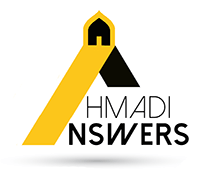The false allegation of the anti Ahmadi Muslims is that Ahmadas used opium. This is totally false. If a Muslim uses medicine which includes alcohol, for example, only the most ignorant would call him an alcoholic. In the same way, because medicine often uses opium, and Ahmadas used medicine with opium in it duing illness, he is accused of this.
Many modern day scholars of the non Ahmadi Muslims have claimed that alcoholic medicines are allowed in Islam. This includes Imam Abu Hanifarhand the entire Hanafi fiqh that allows alcohol for medicinal purposes.Bilal Phillips also followed by many in todays age has said the same. If Ahmadasused opium for only medicinal purposes, there is no room for any accusation. Furthermore, if he used the type of opium anti Ahmadis claim how do they explain his great success and relationship with Allah? How did he make such logical arguments when it came to the Qur’an and Ahadith, or even the Bible and Vedas or any religious book? In the eyes of many doctors opium is used as half of the medicine in some cases. The use of opium for medicinal purposes does not equate to the use of opium for other reasons. One cannot call a person who uses alcoholic medicine as an alcoholic nor can one accuse all of these Muslim scholars for allowing the use of alcohol to be drunk, rather they have clarified that it is only allowed in such cases when used as medicine.
Ahmadas did not use opium for any purpose other than his needs for his health which is allowed by the anti Ahmadis themselves. Zakir Naik, a scholar known by millions also said that if it is for medicinal purposes and is the only one available for you than it is indeed permissible. He even says if such alcoholic medicine is prescribed you are allowed to take it. He says if it is required and if it’s a drug you are also allowed to take it. He further states that any major drawback you have, can also be cured by medicine and these words are stated by a famous Muslim doctor accepted as a scholar.
The Holy Qur’an tells us:
قُلْ لَا أَجِدُ فِي مَا أُوحِيَ إِلَيَّ مُحَرَّمًا عَلَىٰ طَاعِمٍ يَطْعَمُهُ إِلَّا أَنْ يَكُونَ مَيْتَةً أَوْ دَمًا مَسْفُوحًا أَوْ لَحْمَ خِنْزِيرٍ فَإِنَّهُ رِجْسٌ أَوْ فِسْقًا أُهِلَّ لِغَيْرِ اللَّهِ بِهِ ۚ فَمَنِ اضْطُرَّ غَيْرَ بَاغٍ وَلَا عَادٍ فَإِنَّ رَبَّكَ غَفُورٌ رَحِيمٌ {146}
Say, ‘I find not in what has been revealed to me aught forbidden to an eaterwho wishes to eat it, except it be that which dies of itself, or blood poured forth, or the flesh of swine — for all that is unclean — or what is profane, on which is invoked the name of other than Allah. But whoso is driven by necessity, being neither disobedient nor exceeding the limit, then surely thy Lord is Most Forgiving, Merciful. (Chapter 6 Verse 146)
In the end it is clear that Ahmadas did not use anything unlawful, rather only used medicine which included opium. Even pork has been allowed in some situations in Islam when needed, for example if you have no food and are about to die, and it is the only food available as this verse tells us.
Now there are many people who have lied in regards to this allegation. They quote Siratul Mahdi which is relating to the problem of Ahmadas in regards to having children from around 1884. Ahmadas writes:
November 1884 – One of the problems that I encountered at the time of my marriage was that, as my heart and brain suffered from weakness and I had suffered many illnesses…, my sexual power was almost nonexistent and my life was like that of an old man. Therefore, some of my friends expressed concern at this marriage… that I was not fit for it because of such a weak condition… In short, I supplicated the Almighty regarding this problem and He revealed to me a prescription to treat the ailment. I saw in a vision that an angel was feeding me the medicines. I prepared that prescription and God blessed it so much that I was convinced that I had been given the vigour and strength which can be attained by a man of perfect health. Thereafter, four sons were bestowed upon me. (Tiryaqul-Qulub, pp. 35–36, Ruhani Khaza’in, vol.15, pp.203–204)
This passage is in regards to marriage and Allah allowed Ahmadas to use a medicine which contained opium in it but was not opium itself. As we have explained, if one drinks medicine it would not make sense to call him an alcoholic or claim he drank alcohol. This passage is only relating to the problem of having kids and the use of a medicine in regards to it, which worked and helped Ahmadas have four sons.
The anti Ahmadis then quote a passage of a friend saying that opium is beneficial for diabetes, and asks Ahmadas to use it for diabetes. These are two different instances. One was in regards to having children in 1884 where Allah had allowed the use of a medicine which helped a lot, while the second one occurred much after this incident where Ahmadas replied by saying he would not take opium in regards to diabetes.
The exact quotation which the non Ahmadi Muslims quote is as follows:
“It is very nice of you to have sympathy with me but if I form the habit of taking opium than I am afraid that people will joke that the first messiah was an alcoholic and the second one was an opium addict”
This quotation is only in regards to Ahmadas using opium for diabetes and its clear that never did he use it after he was cured with his weakness in 1884. He has denied that he would use it for diabetes, because Allah did not allow him to. This further shows the truthfulness of Ahmadas and his obedience to Allah.Furthermore, the anti Ahmadis do not have a reference to show that Ahmadas consecutively used opium after 1884, nor do they have any proof that he used it at all when not being used for medicine. Ahmadas disliked the idea of using opium to control his diabetes since there were other cures for it as well and other ways to control it. He only stated that he would not consume opium to treat diabetes, and was referring to the use of pure opium which he had not used even in 1884. However, opium used as a medicine as it was in 1884 is used in Islam and you would not call one who uses a medicine that includes opium or a little bit of alcohol an opium addict or an alcoholic. Ahmadas refused the use of opium on its own for diabetes as it is an addictive drug and there are better ways to cure diabetes. We challenge the anti Ahmadi Muslims to show us any place where Ahmadas used opium for non medicinal purposes and as an addictive substance. Once again, Ahmadas was against using opium on its own for diabetes as that would be wrong and it is an addictive drug on its own, but for medicinal purposes a new situation arises. Many of us have used opium in our medicines without noticing it as it is included in many medicines. The formula for Zad Jam-e-Ishq is included in Siratul Mahdi and proves that opium was never used on its own rather in medicine. It states:

There are many famous scholars of Islam who have used opium as a medicine and are known to be respected in the non Ahmadi Muslim world. One example is of Al-Razi who was a doctor and is known throughout the Islamic world who stated:
“By the time of the Islamic Empire, about 900 AD, the doctor Al Razi was using opium as an anaesthetic so his patients wouldn’t feel the pain of surgical operations. Muslims arriving in India about 1000 AD brought opium there; Indian medical books from 1200 AD discuss the use of opium to control Diarrhea (which works fine).”
These are not our own words rather a official website of History on medicine and science. Imam Al Razi agreed that opium used for medicinal purposes is allowed and gave it to his patients. Will the anti Ahmadi Muslims now accuse this great doctor as well?
The official website of the Journal of the Royal Society of Medicine States:
“Unlike the polypharmacy promoted by some other Islamic authors in the 9th century, al-Razi rarely recommends compound remedies, and when he does, these have few ingredients.All the leading physicians of Baghdad used medicines whose beneficial effects had been identified during the classical period. For example, they used opium in a variety of forms, both external and internal, for ailments and conditions in every part of the body, especially where pain was involved. Opium was considered particularly effective for diseases of the intestines and of the eyes, but it also featured in a number of remedies to treat gout and painful joints.The inflammation of joints associated with gout might explain why ancient Greek physicians described the condition under various names, which they appear to have applied to gout and rheumatism alike. Al-Razi gives four recipes for `gout and the joints’ in Kitab al-Hawi. All of these are pastes or dressings to be applied to the painful areas with, in one instance, a damp piece of paper or cloth to keep the medication moist. Opium occurs in all of them, henbane in one and hemlock in two—one of which also has mandrake. A paste that al-Razi describes as good contains equal parts of opium and liquid storax”(Liquidambar orientalis).”
The Power of the Poppy: Harnessing Nature’s Most Dangerous Plant Ally, which is an academic work by Kenz Filan States:

Some anti Ahmadi Muslims also raise the allegation that using a medicine for feeling weak or sexual dysfunction would not make sense. This is also proven wrong by the great Muslim physician named Abu Ali al Husayn Ibn Sina known throughout the world. It is stated:
“The Persian physician Abū ‘Alī al-Husayn ibn Sina (“Avicenna”) described opium as the most powerful of the stupefacients, in comparison to mandrake and other highly effective herbs, in The Canon of Medicine. The text lists medicinal effects of opium, such as analgesia, hypnosis, antitussive effects, gastrointestinal effects, cognitive effects, respiratory depression, neuromuscular disturbances, and sexual dysfunction. It also refers to opium’s potential as a poison. Avicenna describes several methods of delivery and recommendations for doses of the drug. This classic text was translated into Latin in 1175 and later into many other languages and remained authoritative into the 17th century. Şerafeddin Sabuncuoğlu used opium in the 14th-century Ottoman Empire to treat migraine headaches, sciatica, and other painful ailments” (“Medicinal aspects of opium as described in Avicenna’s Canon of Medicine.”. Acta Med Hist Adriat 11: 101–12. 2013.PMID 23883087. Retrieved 25 November 2014.)
We will also attach an explanation from Hazrat Mirza Bashiruddin Mahmood Ahmadra who also explains this issue and informs us that many of us have taken opium without knowing as it is included in many medicines.







